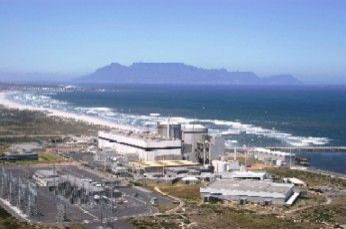S.Africa miners knock back Eskom's coal gripes

South African coal producers on Friday dismissed utility Eskom's criticism of coal quality and the power company's claims that suppliers were favouring exports over deliveries to its electricity generating plants.
State-owned Eskom said it has been struggling to secure all the coal it needs to power Africa's biggest economy over the next 30 year. It accused miners of focusing on exports, hoping for higher profits from shipments to Asia.
The utility has lobbied the government for export quotas and for the state to guarantee sufficient supplies.
Mining Minister Susan Shabangu said on Wednesday she would act to ensure sufficient supplies for power generation, but urged industry to first resolve the problem.
The Chamber of Mines, which represents South Africa's mining industry, said the mining sector should not be blamed if coal quality problems were only affecting two power stations and the problems at those plants had been addressed.
It also rejected Eskom's allegations about producers favouring exports, given that Eskom and their clients in Europe and Asia were asking for material of different quality.
There is no coal supply or quality crisis, the chamber said in an statement.
Heavy handed mechanisms to try and regulate the domestic coal mining industry and interference in a voluntary market based system may well lead to significant distortions and unintended consequences for the country and may well prejudice security of primary energy supply.
The chamber said Eskom could not blame them for shipping more coal abroad, given they were already exporting much less than they expected and had shipped in the past due to constraints on the rail lines leading to the export terminal.
The industry body said coal miners were keen to work with Eskom to address the problem, given there were clear synergies.
The better coals are exported generating much needed foreign currency and the lower quality high-ash coals are used locally for electricity generation and liquid fuel production, it said, adding that Eskom was getting coal on a competitive basis.
Eskom wants to re-negotiate its deals with coal suppliers hoping for pricing based on efficient cost and fair returns, to limit the utility's exposure to international prices.
© Copyright Thomson Reuters {{Year}}. All rights reserved.





















